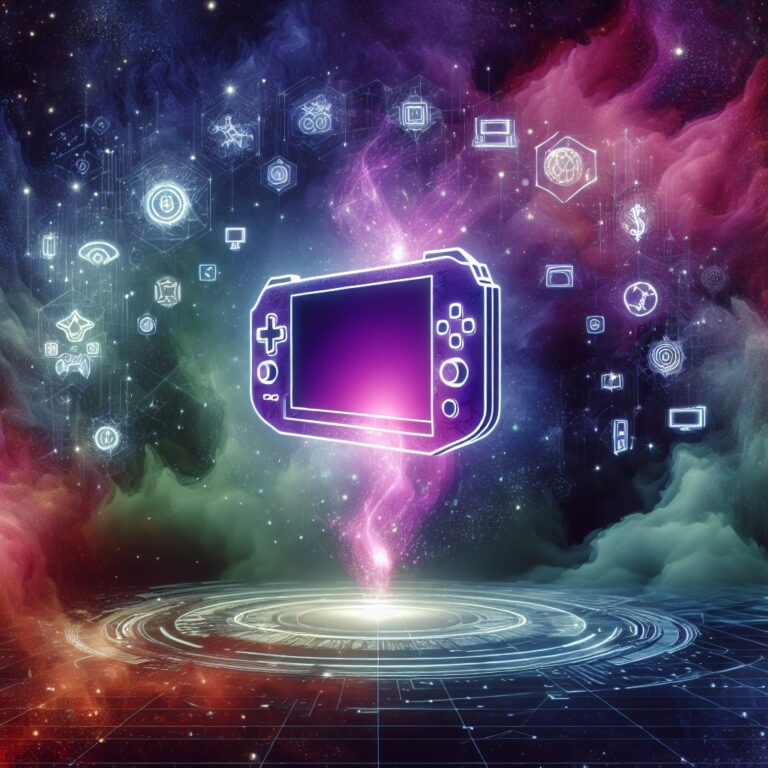In a surprise move poised to shake up the gaming landscape, Microsoft has unveiled its first Xbox handheld device, marking a significant departure from its traditional console approach. Announced just yesterday, this new handheld—though still shrouded in mystery—signals an intriguing shift in strategy as Microsoft seems eager to tap into the portable gaming market.
A New Era for Xbox
Microsoft’s foray into handheld gaming is nothing short of revolutionary. The tech giant, long associated with powerful home consoles, is now eyeing the lucrative handheld sector, traditionally dominated by Nintendo and, more recently, the mobile gaming boom. This pivot comes on the heels of a broader industry trend towards versatile gaming experiences that don’t tether players to their living rooms.
According to insiders, the yet-to-be-named device will integrate seamlessly with existing Xbox ecosystems, promising compatibility with Game Pass—Microsoft’s subscription service that has steadily gained traction since its launch. “It’s a game-changer,” says Laura Jenkins, a gaming analyst at Tech Insights. “They are not just launching a new device; they’re potentially redefining how we think about Xbox gaming. Cross-platform play and cloud integration could set a new standard.”
Crypto Meets Console
But here’s where it gets really interesting. In a move that seems designed to capitalize on the burgeoning intersection between gaming and cryptocurrency, Microsoft is reportedly exploring blockchain-based features for its handheld. This isn’t just a wild guess; recent patent filings hint at the incorporation of NFT (Non-Fungible Token) capabilities and crypto payment options within the Xbox ecosystem. This echoes broader trends in the tech industry, as seen with Google’s integration of blockchain tech to enhance privacy.
Industry experts are buzzing about the possibilities. “Imagine owning unique in-game assets that you can trade or sell,” suggests Andre Patel, a blockchain strategist. “Microsoft seems to be acknowledging the growing demand for digital ownership and the potential to monetize gaming experiences in new ways.”
This isn’t entirely uncharted territory. Other gaming companies have dabbled in blockchain tech, but none with the clout or ecosystem that Microsoft commands. By integrating crypto elements, Microsoft could provide gamers with novel ways to engage, invest, and even profit from their gaming endeavors. This approach is reminiscent of recent innovations in payment systems, such as Mesh’s addition of Apple Pay for crypto transactions.
Market Impact and Future Prospects
The announcement has already sent ripples through the gaming and crypto markets. Shares in companies with vested interests in blockchain gaming spiked following the news, hinting at the potential impact of Microsoft’s latest innovation. But it’s not all sunshine and roses—there’s legitimate skepticism about how these plans will unfold.
Critics warn of potential pitfalls. The integration of crypto features could introduce complexities that might alienate traditional gamers. There’s also the regulatory landscape to consider, which is still catching up with the rapid pace of crypto advancement. “It’s a bold move,” admits Jenkins, “but one that comes with significant hurdles.”
And what about the timing? While the handheld is still years away from hitting the shelves, its announcement now might be an attempt to build anticipation and outpace competitors eyeing similar innovations. Yet, this lead time also raises questions about how rapidly technology—and market demand—might evolve before the device’s eventual release.
Looking Ahead
As we stand on the cusp of a potential gaming revolution, the unanswered questions loom large. Will Microsoft’s handheld redefine the gaming experience, or will it become just another gadget in a crowded market? How will the integration of crypto features reshape player interactions and game economies? And perhaps most pressingly, can Microsoft maintain its momentum in a landscape that changes as fast as you can say “Game Over”?
For now, all eyes are on Microsoft. The next-gen Xbox might be years away, but the future of gaming—and its intersection with crypto—has never felt closer.
Source
This article is based on: Next-Gen Xbox Preview: Everything You Need to Know About the Console and Crypto Plans
Further Reading
Deepen your understanding with these related articles:
- Truth Social Explores Cryptocurrency Launch for Subscription Payments (openai)
- Morgan Stanley eyes crypto rollout for E*Trade platform: Bloomberg
- Sam Altman’s World Crypto Project Launches in US With Eye-Scanning Orbs in 6 Cities

Steve Gregory is a lawyer in the United States who specializes in licensing for cryptocurrency companies and products. Steve began his career as an attorney in 2015 but made the switch to working in cryptocurrency full time shortly after joining the original team at Gemini Trust Company, an early cryptocurrency exchange based in New York City. Steve then joined CEX.io and was able to launch their regulated US-based cryptocurrency. Steve then went on to become the CEO at currency.com when he ran for four years and was able to lead currency.com to being fully acquired in 2025.


